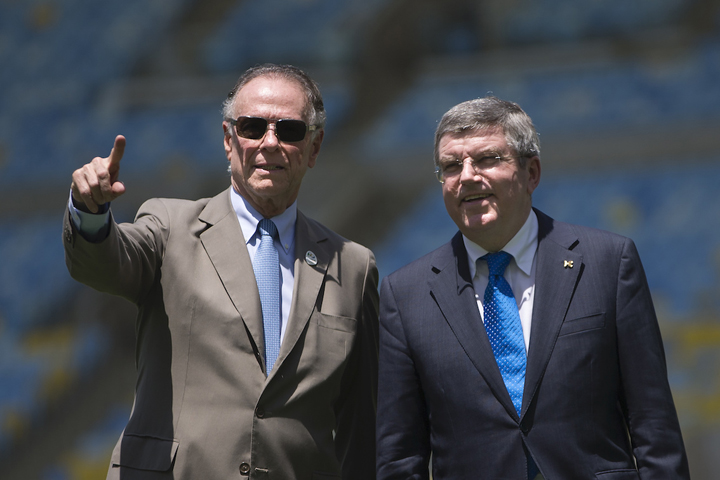
SãO PAULO—Carlos Arthur Nuzman, the head of the Brazilian Olympic Committee for more than two decades, was sentenced to 30 years and 11 months in jail for allegedly buying votes for Rio de Janeiro to host the 2016 Olympics.
The ruling by Judge Marcelo Bretas became public Thursday.
Nuzman, who also headed the Rio 2016 organizing committee, was found guilty of corruption, criminal organization, money laundering and tax evasion. The 79-year-old executive won’t be jailed until all his appeals are heard.
He and his lawyer did not comment on the decision.
Bretas also sentenced to jail former Rio Governor Sergio Cabral, businessman Arthur Soares and Leonardo Gryner, who was the Rio 2016 committee director-general of operations. Investigators say all three and Nuzman coordinated to bribe the former president of the International Association of Athletics Federations, Lamine Diack, and his son Papa Diack for votes.
Cabral, who has been in jail since 2016 and faces a series of other convictions and investigations, told Bretas two years ago he had paid about $2 million in exchange for up to six votes in the International Olympic Committee (IOC) meeting that awarded Rio the Olympic and Paralympic Games. He said the money had come from a debt owed to him by Soares.
Cabral, who governed Rio state between 2003 and 2010, added that another $500,000 was paid later to Diack’s son with the aim of securing three more votes of IOC members.
Bretas’s ruling labels Nuzman as “one of the main for the promotion and the organization of the criminal scheme, given his position in the Brazilian Olympic Committee and before international authorities.” The judge also said the sports executive “headed and coordinated action of the other agents, clearly as a leader” to illegally garnish support at the IOC.
The judge said he will send the results of the investigation to authorities in Senegal and France, where Papa Diack and Lamine Diack live, respectively.
Rio’s bid beat Chicago, Tokyo and Madrid to host the 2016 Games.
The investigation in Brazil began in 2017 after French newspaper Le Monde found members of the IOC had been bribed three days before the 2009 session in Copenhagen where Rio was picked to host the Games.
WADA REFORMS OUT, BUT ATHLETES WANT MORE
THE World Anti-Doping Agency approved a series of reforms designed to give athletes a bigger voice in decision-making, though the changes were roundly criticized by activist groups that said they didn’t go far enough.
At its board meeting Thursday, Wada announced it was adding two seats to its executive committee, one of which will go to an athlete representative. It approved creation of an independent ethics board and reformed the athletes council to give a wider group of athletes a say in appointing its 20 members.
Wada also approved a pilot athlete ombudsman program, which is supposed to provide independent advice for athletes in dealing with doping issues.
A number of athlete groups put out statements deriding the changes as little more than cosmetic. One major complaint is that the key decision-making bodies are still populated with members of the IOC, which accounts for half of Wada’s funding. World governments supply the other half.
“Wada should neither be controlled nor governed by anyone who has a stake in the economics of sport competition if they are to be considered legitimate,” said a statement drafted on behalf of four separate athletes groups, including Global Athlete.
Wada’s independence has come under scrutiny over the past decade, during which a doping scandal in Russia roiled the anti-doping movement and led critics to wonder if the global regulator was going too easy on Russia at the behest of the IOC.
Another group, World Players, put out a detailed spreadsheet that compared Wada’s reforms to what the group has been proposing. Among the criticisms is that many of the athletes in decision-making positions arrive there because of their relationship with the IOC and other entities in the sports movement.
“These athletes have legal duties and obligations to the sport movement which may not be in the best interest of athletes,” the analysis said.
Wada said there are more changes to come. President Witold Bańka said the actions completed Thursday “will have a far-reaching and meaningful impact on how the agency is governed, with more independent voices around the table and increased representation for athletes and national anti-doping organizations.” AP
Image courtesy of AP

